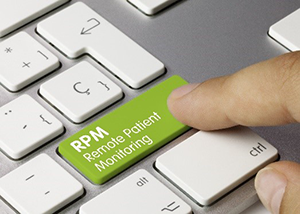The MHCC hosts peer learning events for health care professionals to highlight innovation and real-world practice transformation efforts. Each event is developed in collaboration with health care stakeholders and showcases strategies that bring together health IT, team-based care, care coordination, patient engagement, and value-based approaches to improve health care quality and outcomes and reduce disparities. Select events offer continuing education credits.
Subscribe here to receive email notifications about MHCC learning events.
Upcoming Meetings
None at this time.

|
BEST PRACTICES FOR COORDINATING CARE AND MANAGING REFERRALS
November 2025
The Executive Director of the Maryland Health Care Commission (MHCC) reviews new Medicare reimbursement codes supporting Social Determinants of Health Risk Assessment, Community Health Integration, and Principal Illness Navigation. A primary care leader and CRISP representatives outline strategies to improve communication, clarify care team roles, and build systems for information sharing and patient follow-up across primary care, specialty care, and other partners. They also demonstrate how to use CRISP and electronic health records for seamless data exchange, stronger collaboration with external providers, and the development of protocols that ensure closed-loop referrals.

|

|
THE EVOLVING ROLE OF SOCIAL WORKERS IN TEAM-BASED ADVANCED CARE DELIVERY
November 2023
A social worker and medical director share how the role of social workers in team-based models is evolving. The presentation includes information about why some Innovative care delivery practices employ in-house social workers and demonstrate how Innovative care delivery practices share social worker resources.
 
|

|
Exploring the Connection Between Auditory Health and Overall Wellbeing
June 2023
An audiologist and nurse practitioner share best
practices for identifying and addressing hearing loss
in primary care settings. The presentation includes
information on the impact of hearing loss on overall
health, how to recognize the signs of hearing loss, and
strategies for establishing referral relationships with
audiologists.
 
|

|
Health Equity Symposium
March 2023
Challenges around addressing health equity issues are discussed during this symposium, which was convened in collaboration with the Health Services Cost Review
Commission and MedChi, The Maryland State Medical Society. Discussions focus on strategies for identifying patterns of need in the community, building referral networks for services related to social needs, and connecting patients to resources.
 
|

|
Assessing and Vetting Community Resources
May 2022
Clinicians from Carroll Hospital and Adventist HealthCare discuss identifying statewide community resources, determining capacity of community resources, and leveraging and prioritizing partnerships with community resources.
  |
 |
Symposium Series: Innovative Care Delivery
A three-part virtual symposium series convened in collaboration with the Health Services Cost Review Commission and MedChi, The Maryland State Medical Society. Presentations focus on the evolution of quality measurement and value-based care delivery models; approaches and strategies for team-based care across the medical neighborhood; and multi-disciplinary team approaches to managing high-risk and high-utilizer patients.
|
Session 1: Innovative Models for Managing Patient Populations (November 2021)


Session 2: Innovative Team-Based Care (December 2021)


Session 3: Innovative Value-Based Payment Models (January 2022)



|
Advancing Practice Transformation
April 2021
A Centers for Medicare & Medicaid Services (CMS) Quality Improvement Organization subcontractor and a Medicare quality reporting physician consultant provide an overview of the 2021 Quality Payment Program updates. The presentation also includes tips and resources for succeeding in Merit-based Incentive Payment System (MIPS)
 
|

|
Engaging Patients and Family Advisory Councils During COVID-19
November 2020
A clinician from Ascension Saint Agnes and two clinical staff and a patient family advisor from Luminis Health Anne Arundel Medical Center share tips and lessons learned around engaging patients and their family members in the quality improvement process during the COVID-19 public health emergency.
 
|

|
Improving Quality and Preparing for the Maryland Primary Care Program
December 2019
The webinar provides information on quality improvement activities to enhance care quality in federally qualified health centers and opportunities available in the Maryland Primary Care Program.
 
|
Podiatry
The Podiatry learning network builds awareness and provides education on a range of topics including health information technology, cybersecurity, and alternative care delivery models for podiatric practices.

|
Maximizing Health Information Exchange in a Podiatric Practice
April 2023
Best practices for accessing and utilizing data from health information exchanges (HIEs) are discussed, including how to leverage the data to improve podiatric care delivery and chronic care management. Speakers include a Maryland podiatrist, a representative from the State Designated HIE (CRISP), and MHCC staff.
 
|

|
Remote Patient Monitoring in a Podiatric Practice
March 2022
The webinar focuses on best practices for selecting remote patient monitoring (RPM) technologies, navigating the payer reimbursement process, and implementing RPM in a podiatric practice.
 
|

|
Maximizing Performance in the Merit-Based Incentive Payment System (MIPS)
October 2021
A national podiatric MIPS subject matter expert provides information on optimizing performance in MIPS, including tips on measure selection to improve practice performance.
 
|

|
Protecting Your Practice: Strategies to Improve Cybersecurity
March 2021
Two Qualified Maryland Cybersecurity Sellers, a Maryland podiatrist, and MHCC staff provide information on key strategies for enhancing cybersecurity in podiatric practices.
 
|

|
Adopting Telehealth in a Podiatric Practice: Best Practices & Lessons Learned
June 2020
Maryland podiatrists and MHCC staff provide an overview on adopting telehealth in a podiatric practice. Includes information about best practices, lessons learned, and telehealth adoption resources.
  |

|
Improving Practice Performance in the Merit-Based Incentive Payment System
April 2020
A podiatric MIPS expert provides information about strategies to enhance practice performance and reimbursement in MIPS.
  |
Roundtables
 The MHCC periodically convenes roundtables to inform program planning and obtain stakeholder feedback on diverse health care topics
The MHCC periodically convenes roundtables to inform program planning and obtain stakeholder feedback on diverse health care topics
Health Equity Practice Roundtable (HE Roundtable)
The purpose of the HE Roundtable is to identify challenges and opportunities for practices seeking to address key health equity concerns in their communities. Roundtable participants consist of representatives from innovative care delivery practices. The MHCC aims to advance health equity in ambulatory practices in Maryland through the development of health equity practice resources informed by HE Roundtable feedback.
Meeting Materials
July 13, 2022
Meeting Materials
June 1, 2022
May 4, 2022


March 30, 2022



Patient Reported Outcomes (PRO) Measures Roundtable (PRO Measures Roundtable)
The PRO Measures Roundtable includes innovative care delivery representatives along with select payers, consumers, and practices. The aim of the roundtable is to identify challenges and opportunities for practices seeking to implement PRO measures in care delivery. The roundtable discussion will inform the development of PRO measure resources for practices, such as information briefs or learning symposiums.
Meeting Materials
April 20, 2022



For more information, contact Melanie Cavaliere at melanie.cavaliere@maryland.gov